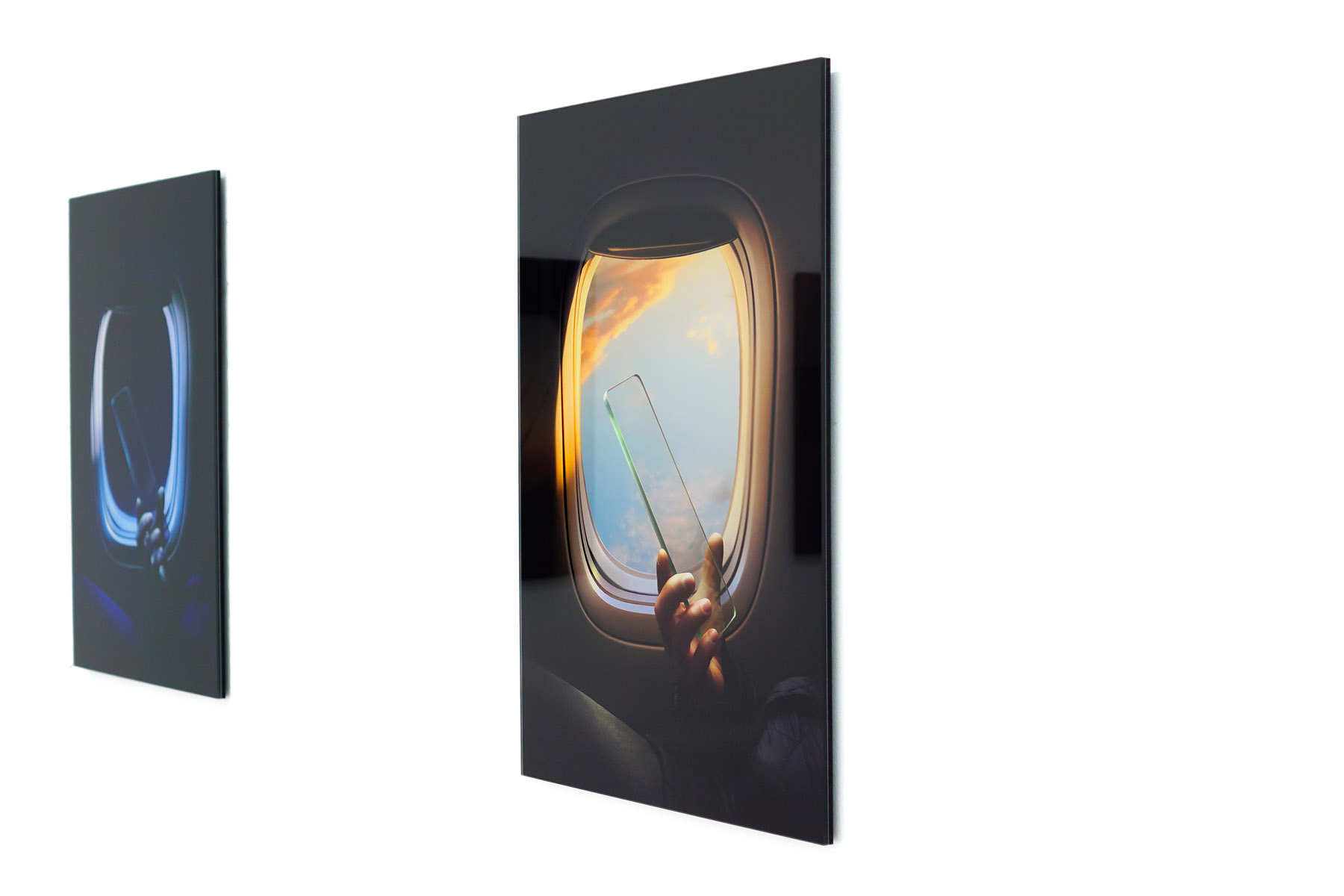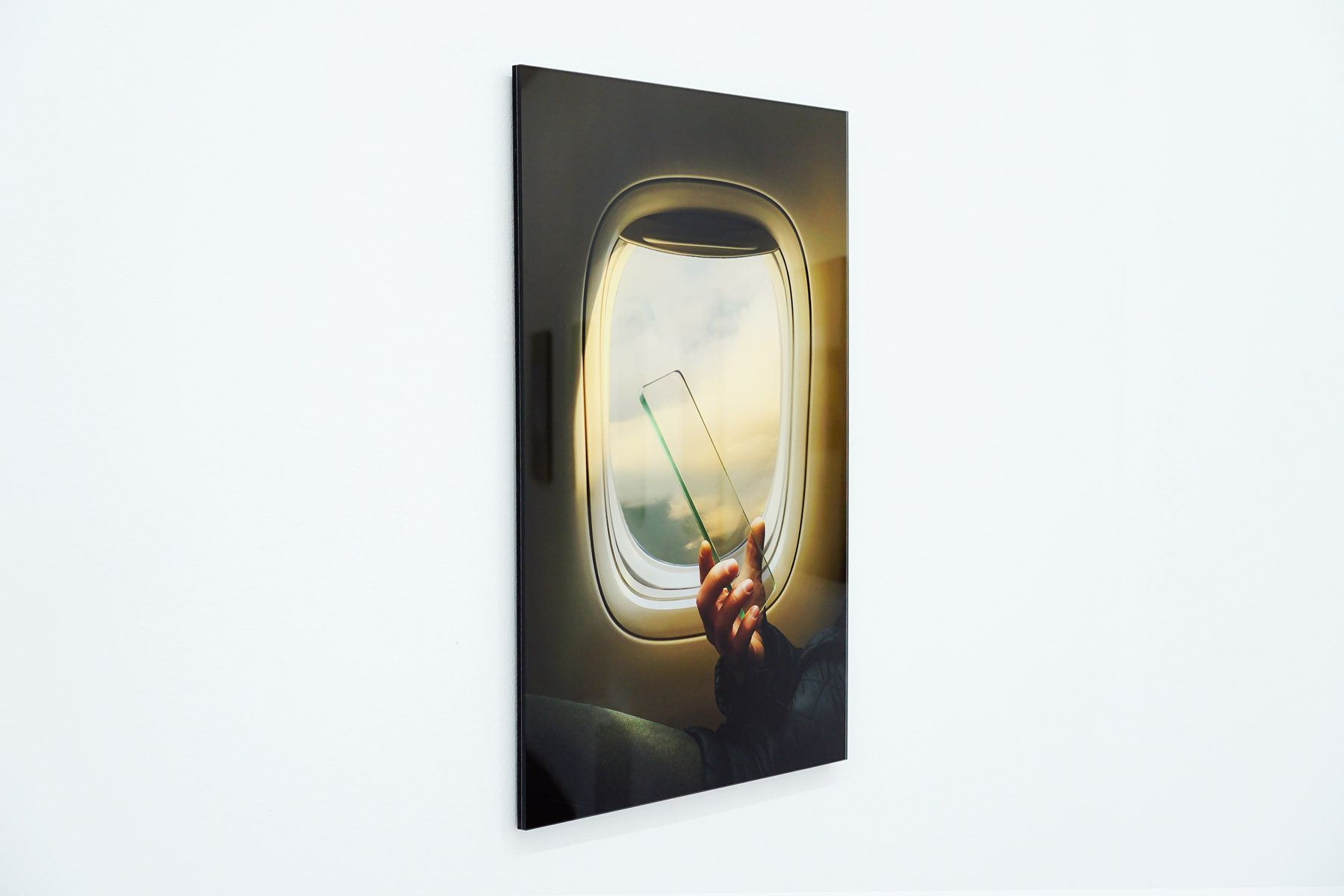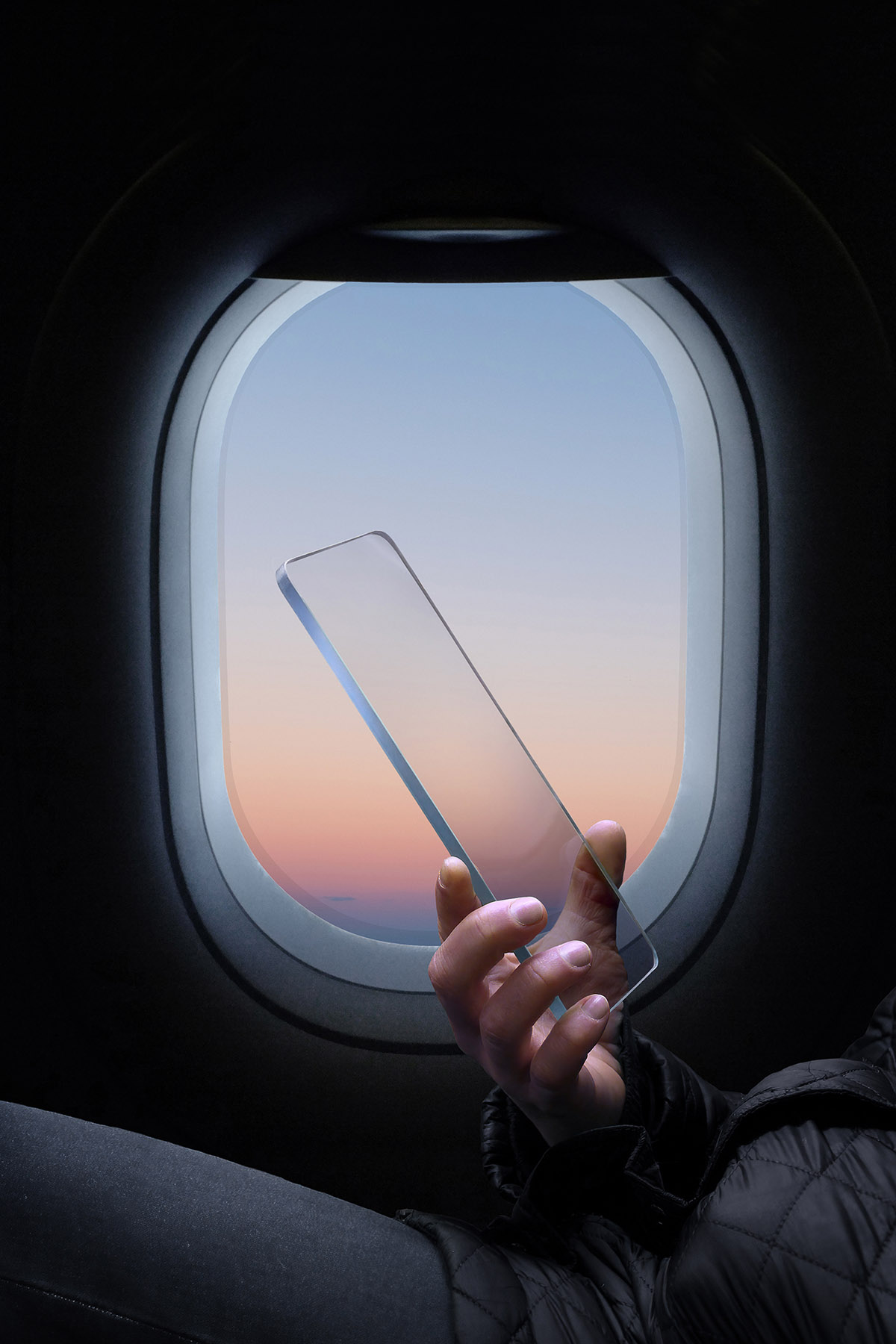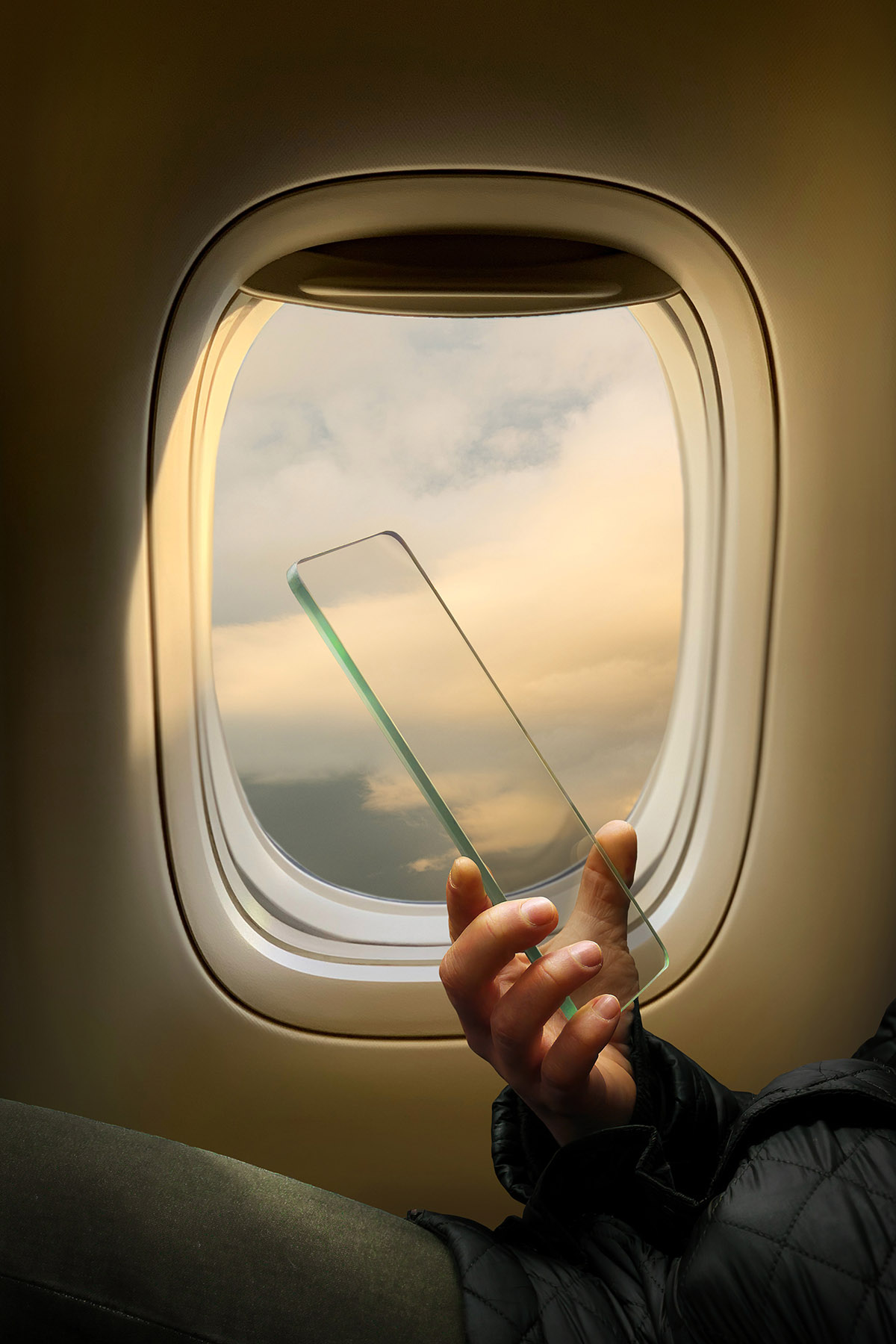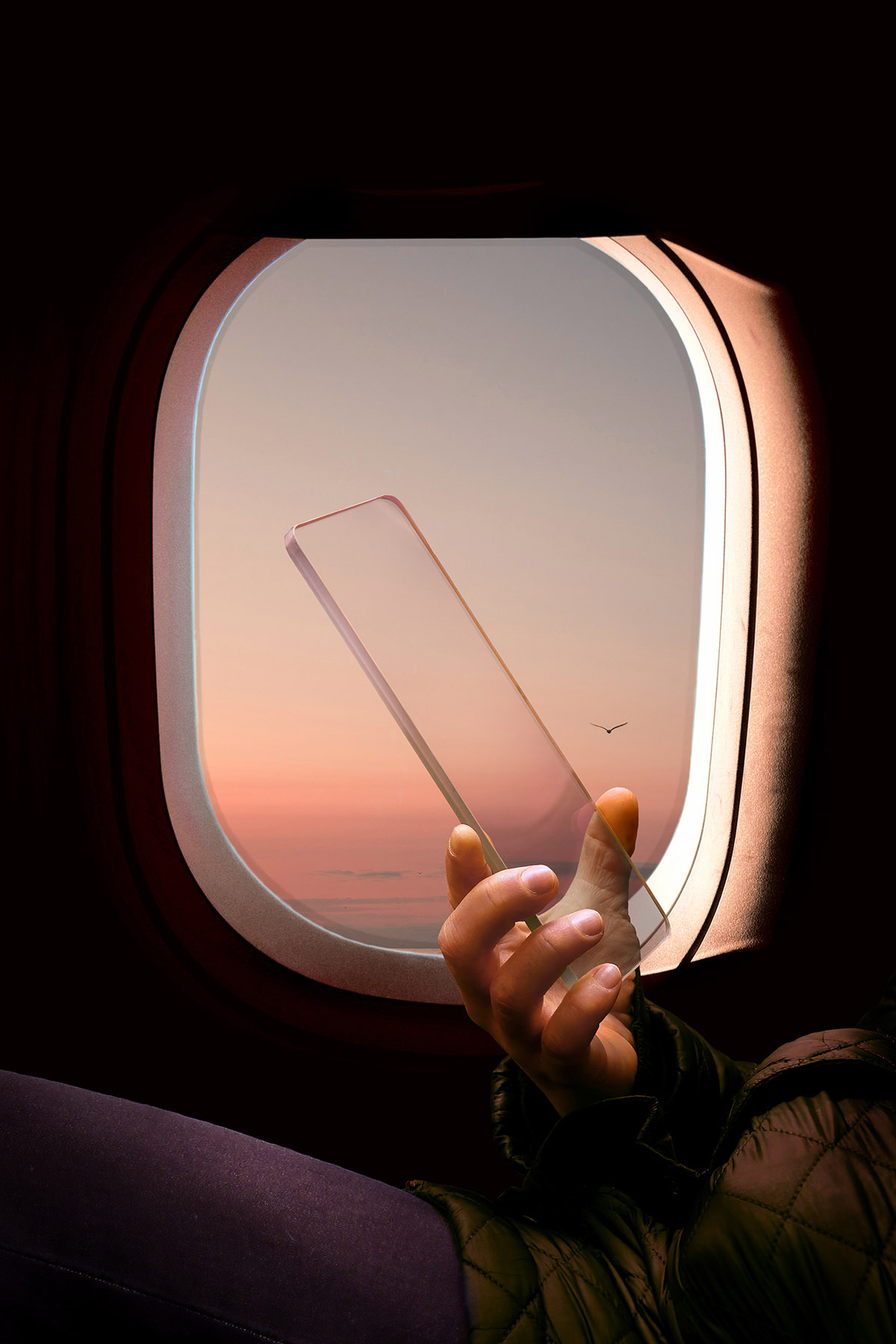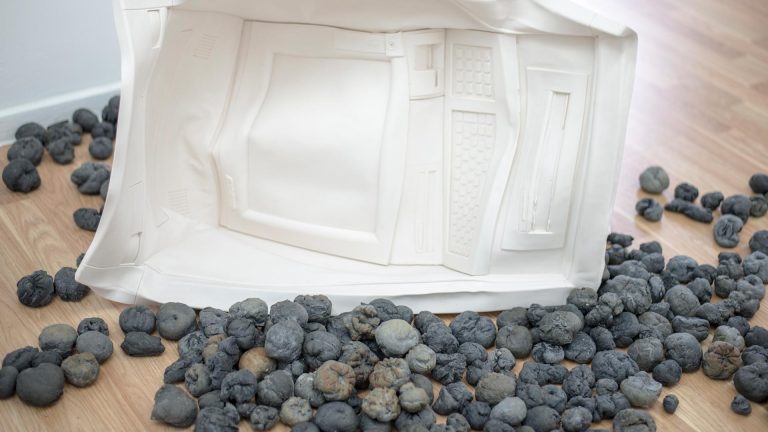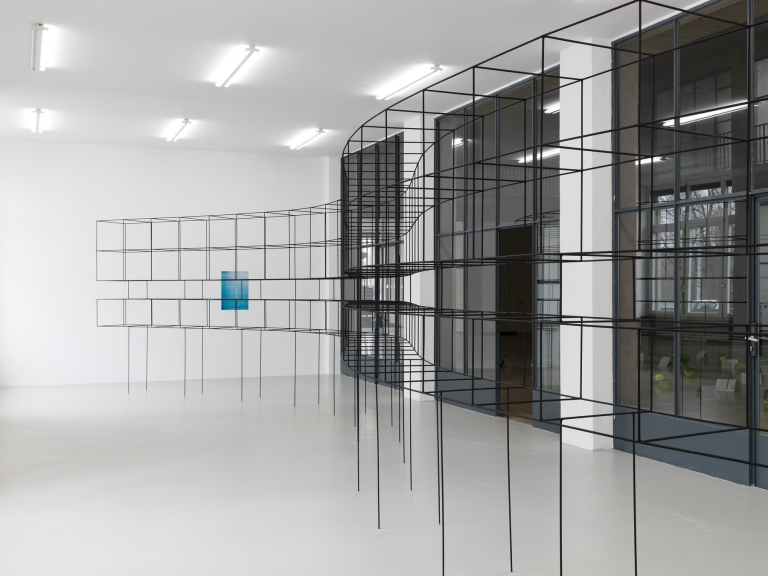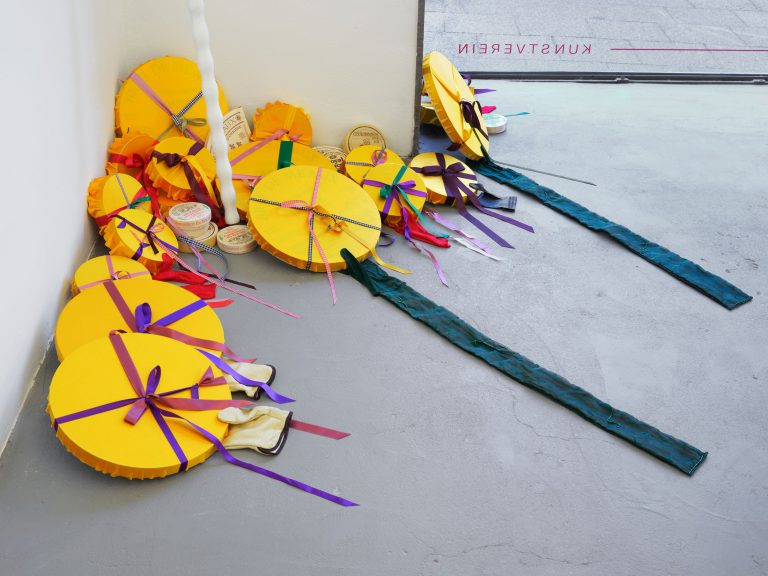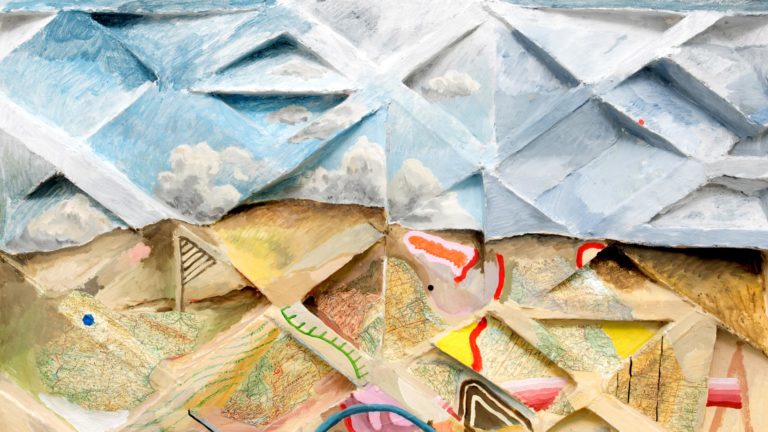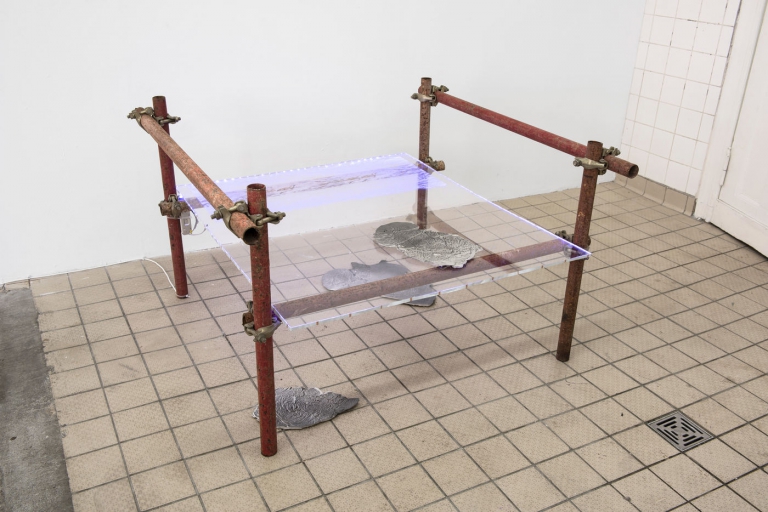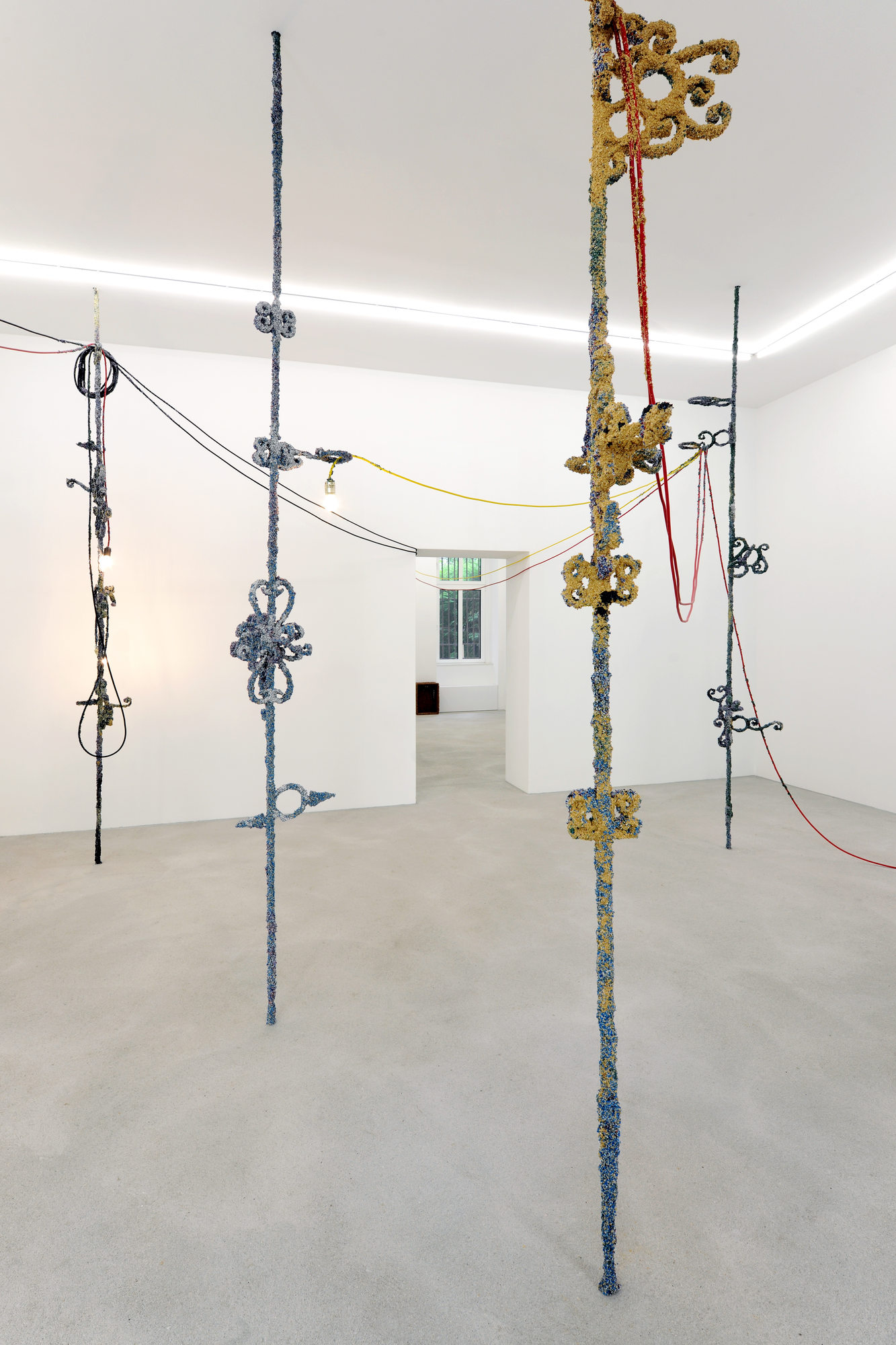Artist: Tilman Hornig
Exhibition title: Stille Nacht
Venue: Galerie Gebr. Lehmann, Dresden, Germany
Date: November 20, 2020 – January 30, 2021
Photography: Tilman Hornig / all images copyright and courtesy of the artist and Galerie Gebr. Lehmann, Dresden
Tilman Hornig shows new photographs from his series of “GlassPhones”, on which he has been working continuously since 2014.
During his studies at the HfBK Dresden mainly active as a painter, Tilman Hornig’s (*1980) work today is characterized by a strong medial diversity, the constant interweaving with contemporary phenomena and thus also digital image worlds. The further development and deepening of motifs in ongoing groups of works is based on a conceptual approach, which, however, manages without pathos or claim to truth due to the free, almost playful implementation in different scenarios and formats. Exemplary for this artistic practice is the group of works “GlassPhone”, begun in 2014. A simple, glass object is readable here solely through its form as a smartphone and Hornig stages it accordingly as an applied sculpture.
Digital photographs and videos show omnipresent situations: Women and men hold the fictitious device in their hands, stretch it out to take a photo, look at the supposed screen, wipe their fingers across the transparent surface, scroll through an invisible feed or type a message.
These are strikingly unspecific and yet even more familiar motifs that evoke the clear aesthetics of advertising and stock photography. Also because people and places step back behind the object to give space to a universal truth. The device abstracted here into a symbol is real for almost everyone everywhere – in the private bedroom, in a café, in a museum, on a plane, in public urban space, in nature – and still remains only a tool for the virtual world.
By throwing back the symbol of digital space, limitless communication, infinite information to its purely material form, Hornig makes the paradoxical cultural elevation visible. For the device as such is free of any content, it is a neutral surface and at no time permanent. Only at the moment of use does it transfer the surrounding reality into a virtual illusion of the same, thus becoming a mirror of countless, varying realities. The transparency of the “GlassPhone” refers to the actual function of the smartphone as a transmitter of information and translator between the worlds.
The complex and ever-increasing overlap of analog and digital realities is touched in the current exhibition “Silent Night” on a formal as well as on a content-related level. It shows 24
variations of a motif from the “GlassPhone” series. In the darkness of an airplane cabin – as the characteristic oval window hatch in the center lets us know – the human body disappears almost completely. Only the hand holding the sculpture is illuminated by the mystical light in the center of the picture, while the “GlassPhone” itself crosses the additional picture surface enclosed by the window frame in an almost perfect diagonal.The precise, harmonious composition differs in its execution only in this second picture surface, the landscape to be imagined and especially the atmosphere of light that radiates inwards and frames the sculpture like an aureole. Golden sunrises or sunsets, rosy pastel evening moods, deep blue night skies or greenish shimmering auroras create stylized hyper-realities. They reveal that this motif was digitally mounted.
In the repetition of the perfect pictorial structure, a sharp artificiality lurks, leading away from the motif and back to the abstract, conceptual level of the work group. The compositional exaggeration – the superimposition of the glass surfaces as transitions to an actual and a virtual reality, which at first glance can quickly be interpreted – is given a surprising twist by this disclosure. A distinction between real and artificial, analog and digital, is of course no longer possible. Indeed, even the categories “real” and “artificial” no longer seem valid, since virtual content has a very real influence on life. Information flows today run in both directions and create equal realities.
Text by Katarina Lozo














